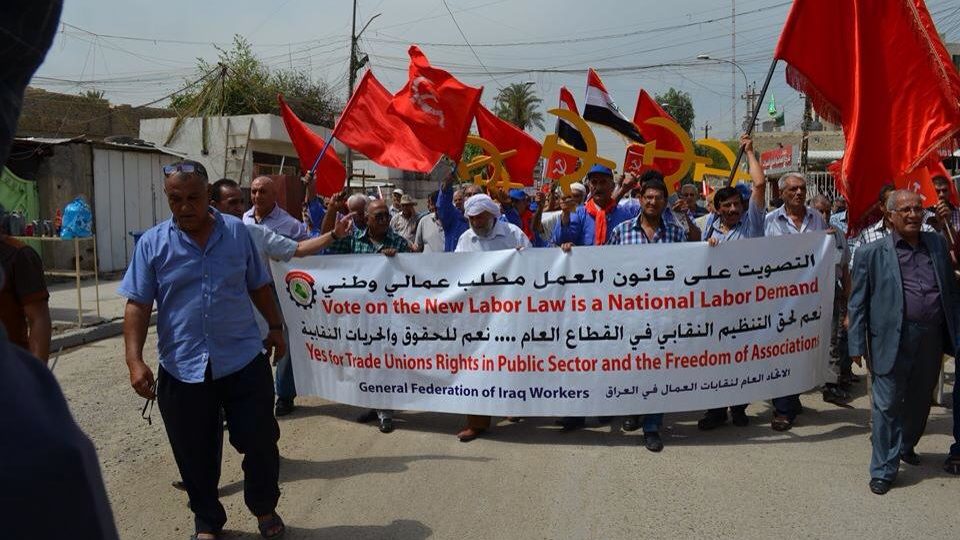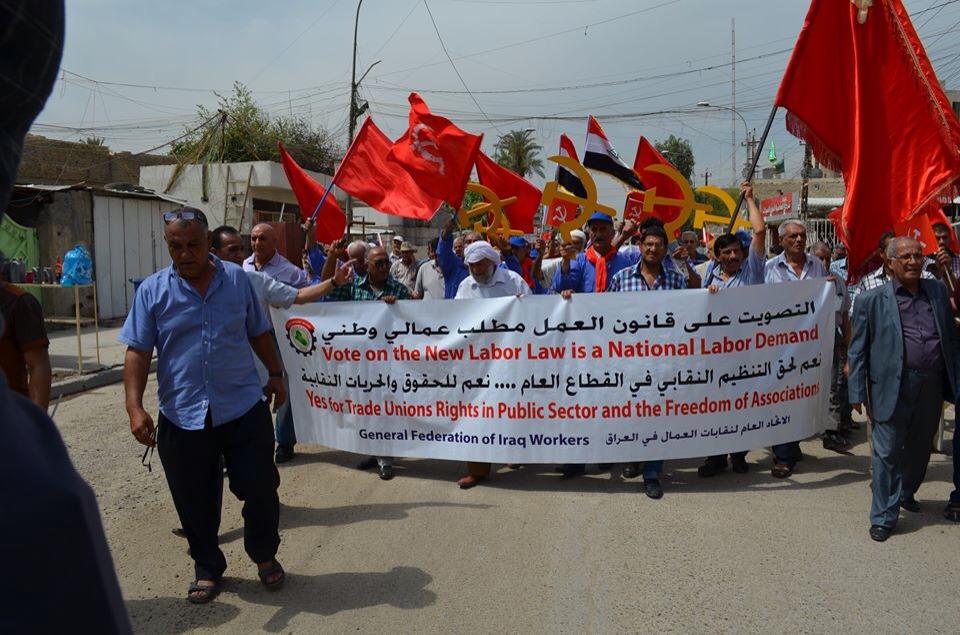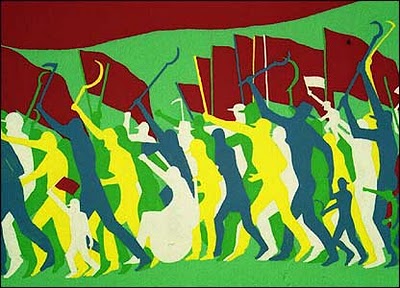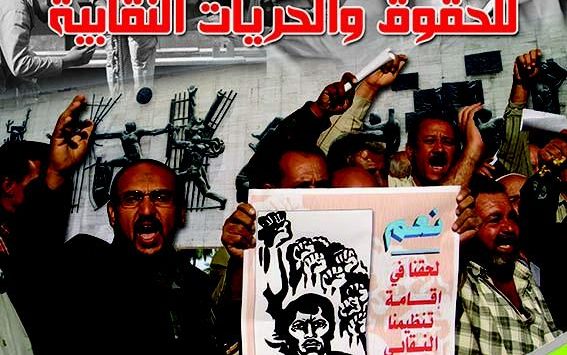Trade Unions in Iraq, Between the Oppression of Government and the Ignorance of Parliament!
On The Occasion of Labor Day:
The Iraqi Civil Society Solidarity Initiative (ICSSI)
May 2014 – Baghdad
For more than a decade, trade unions in Iraq have been demanding new labor laws which respect international standards, along with the abolition of decisions and laws issued during the previous decades which are inconsistent with the fundamental rights of workers according to the International Labor Conventions, and in particular with the rights and protections offered by trade unions. Workers demonstrated with public support, in the streets of Baghdad this year, hoping for change and calling for the recognition of their legitimate demands.
For the past two years, Iraqi trade unions have worked hard to propose amendments to a draft of the new Labor Law, and to participate in the drafting of the proposed Trade Union Law. Their inclusion in this legislative process would help to guarantee the rights of workers and trade union organizations which fall in line with the basic rights of the worker — already included in Arabic and international labor agreements. International organizations, such as the International Solidarity Center and other international unions, have given direct support to the demands of the Iraqi workers through letters and statements. Unfortunately however, nothing has changed: a retroactive labor law is still in force, and repressive government policies toward unions and their activists still operate in Iraq.
The New Labor Law
The draft labor law was modified by the Working Committee and the Legal Committee in the Iraqi Council of Representatives. It was read twice to the Council, and voting began on some of its articles. The voting was then stopped due to political conflicts and the lack of a quorum in the House of Representatives. The draft law in its current form still contains irregularities, especially regarding the right to collective bargaining, and the right to strike and assemble without any restrictions (both rights are already stipulated in corresponding international labor conventions). In addition, problems still remain in those articles relating to acceptable procedures for the resolution of collective work disputes, and the mechanisms which might expand the scope of collective work agreements. Still, even given these issues, Iraqi unions are convinced that a vote on the current draft law must be done quickly. In their view, the current draft includes important positive reforms, especially when compared to the labor law now in force, such as, the prevention of discrimination in all its forms, the prohibition of forced labor, the protection of women workers, and the right of workers to bargain collectively and to strike.
Trade Union Law
There is still much disagreement between unions and politicians about the proposed law. Unions demand that public-sector workers have the right to organize in unions, while some Iraqi politicians refuse to protect this right, and want instead to limit it to private-sector workers, following laws passed by the former regime. This was clear in the process of drafting the Trade Unions Law, which already went through its first reading in the Parliament. In a statement, the union asserted that: “the right to form unions in the public sector is a core issue, and one of the top priorities of Iraqi trade unions, who will not renounce it under any circumstances. It is a right guaranteed by Arabic and International Labor Agreements, by the Universal Declaration of Human Rights, and International Covenants. Iraqi workers will never give up their rights”.
To follow the news of the Iraqi trade unions and their activities through the social network:
You can visit the following page: https://www.facebook.com/labor.movement.iraq?ref=hl
Or write through the following group: https://www.facebook.com/groups/157900620939410/






